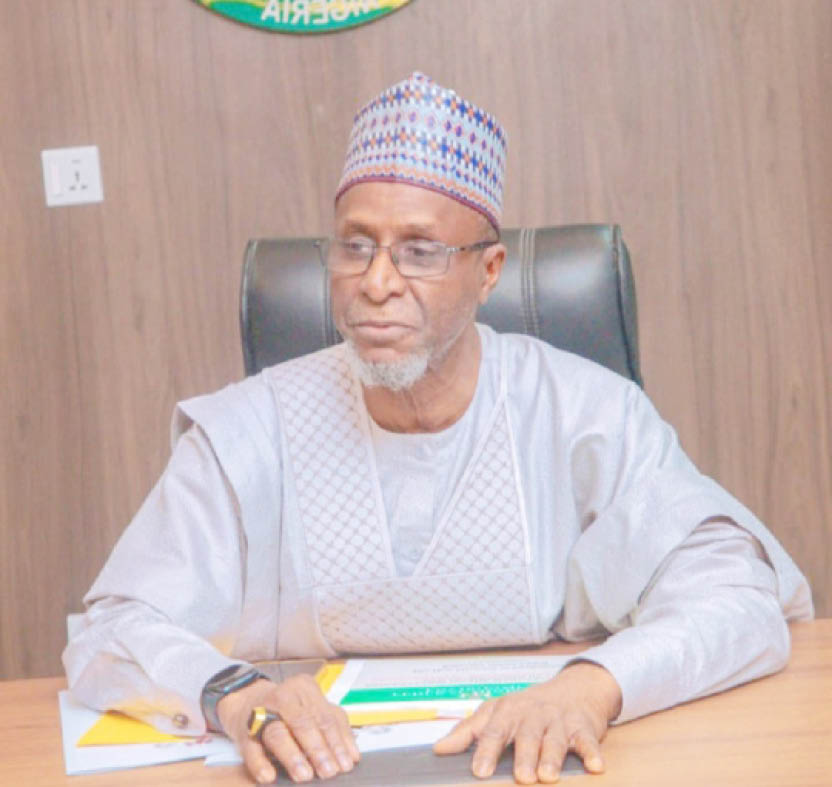FG, UNIDO unveil 25 reverse vending machines to tackle plastic waste
The United Nations Industrial Development Organization (UNIDO) has partnered the Ministry of Environment, Abuja Environmental protection Board, (AEPB), to unveil 25 units of Plastic waste Reverse Vending Machines (RVMs) to promote a circular economy and achieve Zero waste management in the country. The Minister of Environment, Mallan Balarabe Abass during the unveiling programme in Abuja […]

minister of environment, mallan balarabe abass
The United Nations Industrial Development Organization (UNIDO) has partnered the Ministry of Environment, Abuja Environmental protection Board, (AEPB), to unveil 25 units of Plastic waste Reverse Vending Machines (RVMs) to promote a circular economy and achieve Zero waste management in the country.
The Minister of Environment, Mallan Balarabe Abass during the unveiling programme in Abuja said the increasing volume of plastic waste generated in the country presents unique opportunities for harnessing circular economy business models across the plastic value chain.
He said it is in recognition of these opportunities, they have taken proactive measures to promote circular economy principles and practices through the provision of Reverse Vending Machines (RVMs) in the Federal Capital Territory geared towards achieving the zero waste objective.
“Reverse vending machines offer several advantages, one of which is their contribution to recycling efforts. They enable the efficient collection of recyclable materials, reducing the need for raw materials to produce new containers. We see great opportunities already in the food and beverage industry in view of the interest of our vibrant youths in waste management,” he said.
The minister however, said the installation of these machines at strategic places across the city, will significantly reduce plastic waste littering our streets.
“These machines will also encourage recycling and make a visible impact on the cleanliness and sustainability of our urban areas.”
In his remarks, UNIDO’s National Programme Officer, Mr. Osuji Otu, emphasised the importance of the project in supporting sustainable waste management practices.
“This marks a significant step forward in promoting a circular plastic value chain and mitigating plastic pollution in Nigeria.”
He said: “Nigeria is strategically positioning itself on effective waste management, this is responsible for the increasing level of partnership it enjoys today. However, its population and level of industrialisation is responsible for high levels of consumption and production of plastics waste. Therefore, there is a need to develop strong, strategic and impactful measures, which will be put in place to contain this, if not, Nigeria will continue to be a haven for plastic pollution.”
He however, appealed to the Nigerian government at both state and federal levels to scale up the project nationwide.
He called on the private sector and international development, including other UN agencies and donor organisations, to lend their support in expanding the deployment of Reverse Vending Machines across the country.
The ambassador of Japan to Nigeria, H.E. Kazuyoshi Matsunga,said the introduction of the RVMs aims to promote plastic waste segregation and collection by offering rewards to consumers for their participation.
“We are sure that RVMs that will be installed further in public places such as parks, schools, supermarkets, and shopping malls will make it easier for the general public to participate in the plastic waste management process,” he said.
Ambassador Matsunga highlighted the importance of international cooperation in tackling waste management issues and commended Nigeria for taking proactive steps in this regard.
He also said that the Reverse Vending Machines symbolize the dedication of both Japan and Nigeria to promoting sustainable plastic value chains and protecting the environment, calling it a meaningful collaboration that could serve as a model for other nations.
